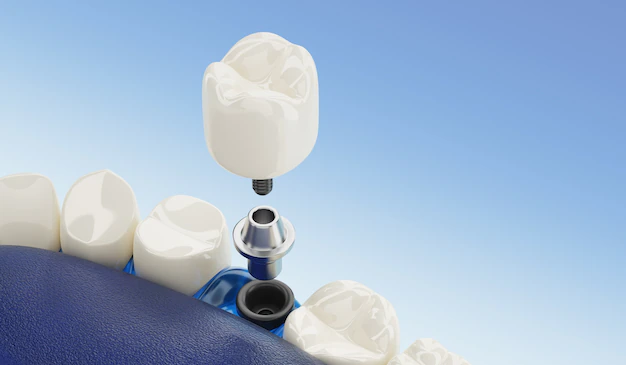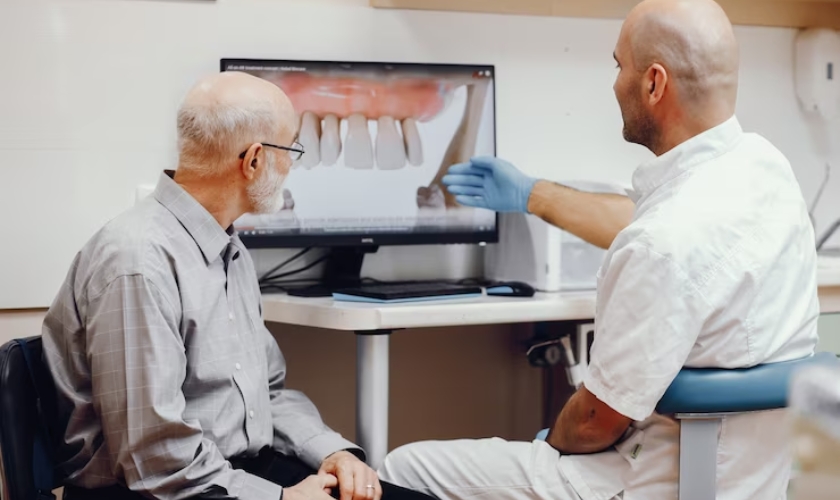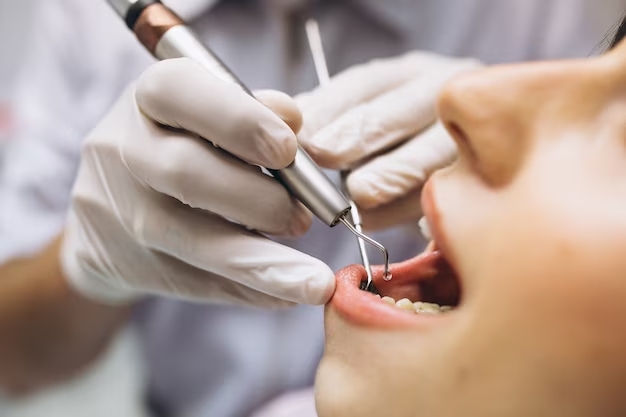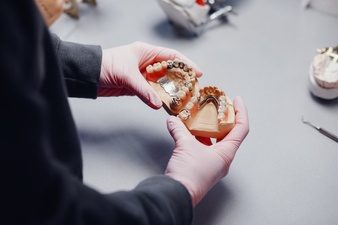What you should know about implant-supported dentures

How To Find The Right Emergency Dentist Near Me In Olds?
September 22, 2022
Find Out If You Can Remove All 4 Wisdom Teeth At Once
October 7, 2022People who want to replace missing teeth choose implant-supported dentures more often. Even though getting implant-supported dentures has many benefits, many people have questions about them and how they can help solve their problems.
Important information about implant-supported dentures
The following are some critical considerations for anyone thinking about getting implant-assisted dentures:
1.Dentures anchored to dental implants are an option for tooth loss.
Implant-supported Dentures are custom-made by dental experts using acrylics that complement each patient’s natural teeth and gums. Dental implants are placed into the jawbone to secure these dentures in place. This method of tooth replacement is among the most reliable options available.
Dentures fabricated in such a way as to mimic the form and function of a person’s natural teeth are an alternative for patients who lack teeth and would prefer to restore their smile with this method of treatment.
2.Dentures held in place by implants might be either complete or partial.
Dentists use ball-retaining or bar-retaining dentures to secure false teeth to the jaw. These dentures are held in place by implants with a ball-shaped attachment at the top. These clasps attach to similar clasps on the dentures for a snug fit.
Implants secure a metal bar mimics the patient’s jaw in bar-retaining dentures. Dental professionals then fasten the dentures to the bar once the implants have healed. These alternatives to typical denture adhesives result in a more secure fit for the patient’s false teeth.
3.Dentures secured by implants are more secure than those without implants.
People who use traditional dentures often complain that they slip. Because implant-supported dentures are more secure than conventional ones, patients who have them generally don’t experience this problem.
The dental implants used for implant-supported dentures stimulate the jawbone because they are anchored to and absorbed by the bone and keep the jawbone from resorbing and causing the dentures to need adjusting as it provides support from the jawbone.
Ordinary dentures need regular adjustments because bone tissue deteriorates and shrinks over time. As a result, your grin drops, you get wrinkles, and your bite weakens. If you’re missing teeth and want a long-lasting, secure solution, implant-supported dentures are better than traditional ones.
Benefits of Implant-supported Dentures
When a patient loses most or all teeth in a dental arch, implant-supported dentures are an excellent way to restore their smile. Some of the advantages are as follows.
- Implant-supported dentures are more accessible and convenient to care for than regular dentures. Cleaning and upkeep are similar to taking care of natural teeth, including daily brushing, flossing, and biannual trips to the dentist.
- The cost of these bridges is far lower than that of individual dental implants.
- They look and feel like natural teeth.
- Also, dental implants stimulate the jawbone, essential for maintaining bone mass and avoiding resorption.
How to Care for Your Implant-Supported Dentures
Dentures, if not adequately cleaned, routinely attract and hold onto stains and discoloration, just like natural teeth.
The following advice will help you make the most of your implant-supported dentures:
1.Start using a soft toothbrush and fluoride-free toothpaste
Brush your implant-supported dentures with a soft bristles toothbrush and some toothpaste daily. Doing so can eliminate the biofilm that forms on the device and contributes to tooth decay; good brushing makes it easy to remove some stains on false teeth.
2.Use an implant brush and water flosser
Use a water flosser to avoid plaque and tartar buildup around the implants. Water floss makes the cleaning process between gum tissue and the restoration quick. People can purchase flossers with specialized miniature brushes made for cleaning implanted hardware.
3.Soak them in denture solution if necessary
Dentures secured to implants can be either removable or permanent. The detachable types must be disinfected and maintained in a denture solution soak overnight.
4.Seek out an implant surgeon’s cleaning services
Implants and restorations attached to them can be assessed by a dentist at regular biannual checkups, allowing for the early detection and treatment of any problems. The dentist will disinfect the device and check for gum disease symptoms while the patient waits.
5.Fix your smile’s missing teeth
If you’re missing most or all of your teeth, implant-supported dentures could be your solution. Contact our Lubbock office by phone or in-person to schedule a consultation with our implant specialist.
Implants hold two kinds of dentures: those with a bar and those with a ball. In either case, the dentures are usually acrylic, so they look like normal gums.
What are two types of implant-supported dentures?
1.Bar-retained supported dentures
With bar-retained supported dentures, a thin metal bar follows the shape of the jawline and connects to two to five implants that we put into the jaw bone. The patient then snaps the denture using clips or other attachments attached to the bar. The denture itself fits over the bar, and these attachments hold it securely in place.
2.Ball-retained dentures
Ball retained supported dentures, also called stud-attachment dentures, work by having the jaw bone hold a small metal attachment that fits into an attachment the dentist puts in. Most of the time, the attachments on the implants look like balls. These are called male attachments. The male attachments fit into tiny holes on the denture called female attachments.
Are Implant-Supported Dentures Right for You?
Dentures supported by implants are known for years as an efficient and lifelike choice for edentulous individuals. It is possible to employ these specialized dental prosthetics to attach directly to dental implant posts in critical locations to replace teeth on either the mouth’s top or bottom. To get the same-day denture treatment, search for a denture clinic near me and visit the expert dentist today.




